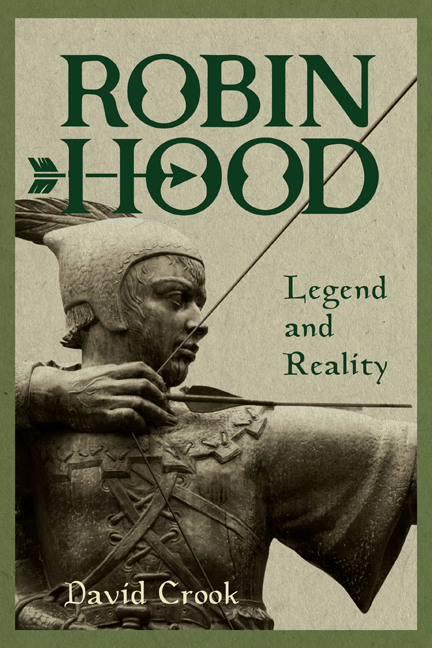Book contents
- Frontmatter
- Dedication
- Contents
- List of Maps and Illustrations
- Preface and Acknowledgements
- List of Abbreviations
- Introduction
- PART I THE LEGEND AND ITS INTERPRETERS
- Chapter 1 The Medieval Tales of Robin Hood
- Chapter 2 Chroniclers, Revellers, Playwrights and Antiquarians, c.1420–1765
- Chapter 3 Editors, the Folklorist and the Archivist, 1765–1889
- Chapter 4 Folklorists, Literary Scholars and Historians: Robin Hood in the Twentieth Century
- Chapter 5 The Robin Hood Places
- PART II OUTLAW AND EVILDOER OF OUR LAND: THE ORIGINAL ROBIN HOOD
- Chapter 6 The Robin Hood Names
- Chapter 7 Robin Hood and Criminality
- Chapter 8 Law and Disorder in Yorkshire, 1215–1225
- Chapter 9 The Sheriff, the Fugitive and the Civil Servant
- Conclusion
- Bibliography
- Index
Chapter 3 - Editors, the Folklorist and the Archivist, 1765–1889
Published online by Cambridge University Press: 16 September 2020
- Frontmatter
- Dedication
- Contents
- List of Maps and Illustrations
- Preface and Acknowledgements
- List of Abbreviations
- Introduction
- PART I THE LEGEND AND ITS INTERPRETERS
- Chapter 1 The Medieval Tales of Robin Hood
- Chapter 2 Chroniclers, Revellers, Playwrights and Antiquarians, c.1420–1765
- Chapter 3 Editors, the Folklorist and the Archivist, 1765–1889
- Chapter 4 Folklorists, Literary Scholars and Historians: Robin Hood in the Twentieth Century
- Chapter 5 The Robin Hood Places
- PART II OUTLAW AND EVILDOER OF OUR LAND: THE ORIGINAL ROBIN HOOD
- Chapter 6 The Robin Hood Names
- Chapter 7 Robin Hood and Criminality
- Chapter 8 Law and Disorder in Yorkshire, 1215–1225
- Chapter 9 The Sheriff, the Fugitive and the Civil Servant
- Conclusion
- Bibliography
- Index
Summary
The Enlightenment of the eighteenth century regarded the medieval period as a time of Gothic uncouthness and barbarity. The chivalry and ritual associated with it, which had survived until the first half of the seventeenth century, hung on only in antiquarian corners of a culture dominated by admiration for classical Greece and Rome, and the Italian Renaissance. However, beginning in the 1760s and 1770s, interest in medieval England underwent a significant revival. This was at least partly derived from an intellectual concern to discover, through the study of historical evidence of various kinds, the true character of past events. Serious attempts were first made, albeit in the context of the much wider search for all old traditional English songs and poems, to collect together the texts of the known Robin Hood stories, and to publish them. The impetus was created not only by a growing interest in medieval and early modern English culture and literature, but by the chance discovery in a country house of an important manuscript, already damaged but fortunately not completely destroyed. The work of publication and interpretation was carried out by several important scholars, not always on the best of terms with each other when their lives and work overlapped. It ultimately culminated in the meticulous edition of the most important poems by Francis Child, initially in America in 1857 and then in 1861 in London, and subsequently, after several more editions in the intervening period, on a more comprehensive basis in 1889. His work became the basis of all subsequent study. Another result of this process was a growing interest in the cultural milieu of the main stories. Did they have a supernatural element and a background in folklore? Did they include any historical truth, or were they, as Child opined in 1889, ‘absolutely the creation of the ballad muse’? Were they a suitable subject for academic study and interpretation, or simply, as described by one critic in 1792, ‘the refuse of a stall’? These developments really began with the activities of an English Anglican clergyman and scholar, who in his youth and maturity gained academic fame, and some notoriety, before in later life becoming the bishop of a northern Irish diocese.
- Type
- Chapter
- Information
- Robin Hood: Legend and Reality , pp. 66 - 97Publisher: Boydell & BrewerPrint publication year: 2020



